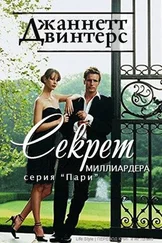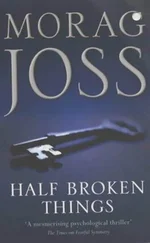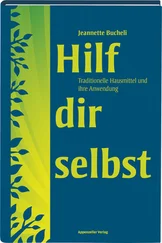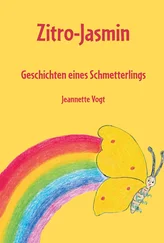
Jeannette Walls
Half Broke Horses
© 2009
***
Lily Casey Smith, Ashfork, Arizona, 1934
This book is dedicated
to all teachers,
and especially to
Rose Mary Walls,
Phyllis Owens, and
Esther Fuchs
And in memory of
Jeannette Bivens and
Lily Casey Smith
MY DEEPEST THANKS TOmy mother, Rose Mary Smith Walls. Over hundreds of hours, Mom was unfailingly generous with her stories, memories, and observations, never refusing to answer a question no matter how personal and never trying to restrict or control what I wrote.
I’d also like to thank my brother, Brian, and sisters, Lori and Maureen, as well as my extended family, the Taylor clan. My gratitude goes out as well to my aunt Diane Moody and my Smith cousins, especially Shelly Smith Dunlop, who presented me with a trove of photographs that showed people, places, critters, and a time I knew only through words.
Thanks also to Jennifer Rudolph Walsh, who is a good friend even before she’s my agent. At Scribner, Nan Graham brought her precision of words and thoughts to my writing, and Kate Bittman’s cheer and hard work are a cherished gift, as is the enthusiastic support of Susan Moldow.
For their horse wisdom and horse sense, I also owe a debt to Joe Kincheloe, Dick Bickel, and especially Susan Homan.
I will never be able to adequately thank my husband, John Taylor, who has taught me so much, including when to pull back and when to let go.
It was the great north wind that made the Vikings.
–
Old Norwegian sayin
The KC Ranch on the Rio Hondo
THOSE OLD COWS KNEWtrouble was coming before we did.
It was late on an August afternoon, the air hot and heavy like it usually was in the rainy season. Earlier we’d seen some thunderheads near the Burnt Spring Hills, but they’d passed way up to the north. I’d mostly finished my chores for the day and was heading down to the pasture with my brother, Buster, and my sister, Helen, to bring the cows in for their milking. But when we got there, those girls were acting all bothered. Instead of milling around at the gate, like they usually did at milking time, they were standing stiff-legged and straight-tailed, twitching their heads around, listening.
Buster and Helen looked up at me, and without a word, I knelt down and pressed my ear to the hard-packed dirt. There was a rumbling, so faint and low that you felt it more than you heard it. Then I knew what the cows knew-a flash flood was coming.
As I stood up, the cows bolted, heading for the southern fence line, and when they reached the barbed wire, they jumped over it-higher and cleaner than I’d ever seen cows jump-and then they thundered off toward higher ground.
I figured we best bolt, too, so I grabbed Helen and Buster by the hand. By then I could feel the ground rumbling through my shoes. I saw the first water sluicing through the lowest part of the pasture, and I knew we didn’t have time to make it to higher ground ourselves. In the middle of the field was an old cottonwood tree, broad-branched and gnarled, and we ran for that.
Helen stumbled, so Buster grabbed her other hand, and we lifted her off the ground and carried her between us as we ran. When we reached the cottonwood, I pushed Buster up to the lowest branch, and he pulled Helen into the tree behind him. I shimmied up and wrapped my arms around Helen just as a wall of water, about six feet high and pushing rocks and tree limbs in front of it, slammed into the cottonwood, dousing all three of us. The tree shuddered and bent over so far that you could hear wood cracking, and some lower branches were torn off. I feared it might be uprooted, but the cottonwood held fast and so did we, our arms locked as a great rush of caramel-colored water, filled with bits of wood and the occasional matted gopher and tangle of snakes, surged beneath us, spreading out across the lowland and seeking its level.
We just sat there in that cottonwood tree watching for about an hour. The sun started to set over the Burnt Spring Hills, turning the high clouds crimson and sending long purple shadows eastward. The water was still flowing beneath us, and Helen said her arms were getting tired. She was only seven and was afraid she couldn’t hold on much longer.
Buster, who was nine, was perched up in the big fork of the tree. I was ten, the oldest, and I took charge, telling Buster to trade places with Helen so she could sit upright without having to cling too hard. A little while later, it got dark, but a bright moon came out and we could see just fine. From time to time we all switched places so no one’s arms would wear out. The bark was chafing my thighs, and Helen’s, too, and when we needed to pee, we had to just wet ourselves. About halfway through the night, Helen’s voice started getting weak.
“I can’t hold on any longer,” she said.
“Yes, you can,” I told her. “You can because you have to.” We were going to make it, I told them. I knew we would make it because I could see it in my mind. I could see us walking up the hill to the house tomorrow morning, and I could see Mom and Dad running out. It would happen-but it was up to us to make it happen.
To keep Helen and Buster from drifting off to sleep and falling out of the cottonwood, I grilled them on their multiplication tables. When we’d run through those, I went on to presidents and state capitals, then word definitions, word rhymes, and whatever else I could come up with, snapping at them if their voices faltered, and that was how I kept Helen and Buster awake through the night.
By first light, you could see that the water still covered the ground. In most places, a flash flood drained away after a couple of hours, but the pasture was in bottomland near the river, and sometimes the water remained for days. But it had stopped moving and had begun seeping down through the sinkholes and mudflats.
“We made it,” I said.
I figured it would be safe to wade through the water, so we scrambled out of the cottonwood tree. We were so stiff from holding on all night that our joints could scarcely move, and the mud kept sucking at our shoes, but we got to dry land as the sun was coming up and climbed the hill to the house just the way I had seen it.
Dad was on the porch, pacing back and forth in that uneven stride he had on account of his gimp leg. When he saw us, he let out a yelp of delight and started hobbling down the steps toward us. Mom came running out of the house. She sank to her knees, clasped her hands in front of her, and started praying up to the heavens, thanking the Lord for delivering her children from the flood.
It was she who had saved us, she declared, by staying up all night praying. “You get down on your knees and thank your guardian angel,” she said. “And you thank me, too.”
Helen and Buster got down and started praying with Mom, but I just stood there looking at them. The way I saw it, I was the one who’d saved us all, not Mom and not some guardian angel. No one was up in that cottonwood tree except the three of us. Dad came alongside me and put his arm around my shoulders.
“There weren’t no guardian angel, Dad,” I said. I started explaining how I’d gotten us to the cottonwood tree in time, figuring out how to switch places when our arms got tired and keeping Buster and Helen awake through the long night by quizzing them.
Читать дальше










